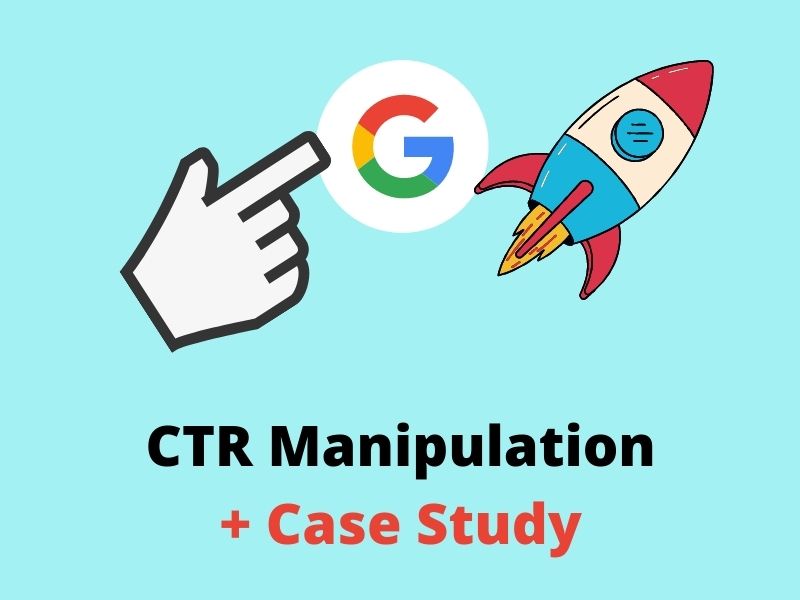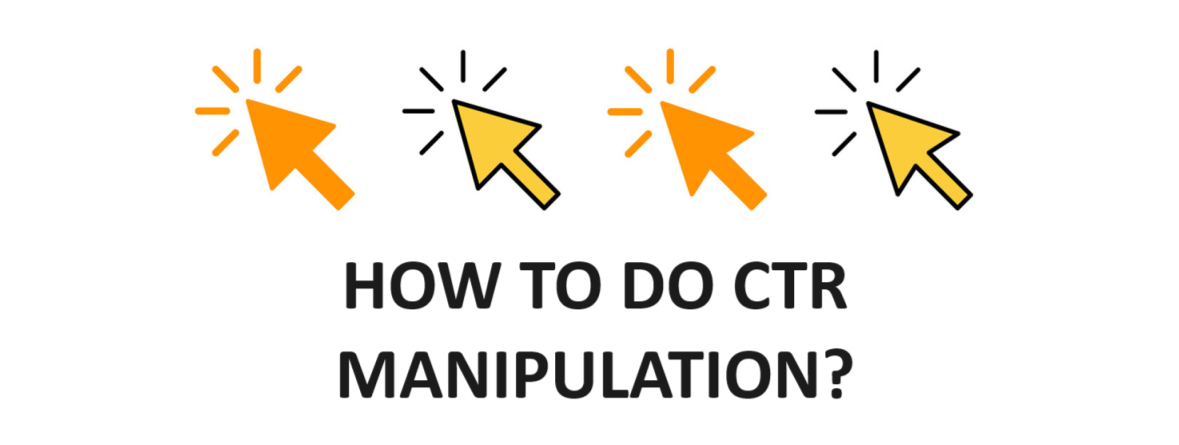Exploring the Partnership In Between CTR Adjustment Solutions and Customer Behavior
In the world of electronic advertising, the impact of click-through rate (CTR) control solutions on user behavior stays a facility and interesting topic. As online systems increasingly rely upon CTR metrics to measure the success of web content, items, and solutions, recognizing just how these manipulated prices effect user interaction and decision-making procedures is paramount. The interplay between CTR adjustment and user behavior increases concerns concerning credibility, trustworthiness, and the ethical implications of such methods. By exploring the complex connection in between CTR control solutions and individual habits, appealing understandings arise that might reshape our understanding of digital advertising methods and their results on customers.
Impact of CTR Adjustment on Actions
Analyzing the impact of Click-Through Rate (CTR) manipulation on customer habits reveals important insights right into the dynamics of online engagement. CTR adjustment includes artificially blowing up the variety of clicks on a certain link or promotion to trick users and search engines. This technique can cause a distorted assumption of a website's appeal or significance, ultimately impacting user habits.

Furthermore, CTR control can alter the data utilized by formulas to personalize customer experiences. This can cause users being offered web content that does not align with their preferences or passions, inevitably resulting in a decrease in customer satisfaction and interaction. Recognizing the impact of CTR control on customer actions is crucial for keeping openness and count on in on the internet communications.
User Engagement With Manipulated CTR
User engagement with controlled CTR information usually leads to skewed perceptions of online material popularity and significance. When individuals engage with web content based upon unnaturally inflated Click-Through Rates (CTR), they may believe that certain information, products, or solutions are much more prominent or reliable than they really are. This can result in customers making decisions based upon deceptive information, bring about potentially unfavorable outcomes.
Engagement metrics like sort, shares, remarks, and time invested on a web page are commonly affected by CTR manipulation. Users might be extra likely to engage with content that appears to have greater interaction rates, even more perpetuating the cycle of manipulated assumptions. Consequently, material developers and advertisers might focus on creating content that generates high CTR instead of concentrating on producing really valuable and relevant product.

Mental Effects of CTR Adjustment

In addition, the mental results of CTR adjustment can also materialize in altered decision-making procedures. Users may be a lot more likely to click on web content exclusively based upon its viewed appeal, instead of its real worth or relevance to their demands. This behavioral shift can cause a surface involvement with on-line content, where customers might ignore premium but less popular offerings in favor of those with synthetically improved CTRs.
In significance, the psychological ramifications of CTR manipulation highlight the value of preserving openness and credibility in online communications to promote genuine customer involvement and count on.
Honest Factors To Consider in CTR Control
CTR control raises check it out concerns regarding tricking customers, misshaping data analytics, and endangering the credibility of on the internet web content. By synthetically inflating CTR, customers may be misinformed right into clicking on links or advertisements they would certainly not have picked otherwise, leading to an insincere online experience.
One more ethical aspect to contemplate is the fairness of controling CTR to gain an unjust advantage over competitors. Taking part in such techniques not only violates principles of fair game yet additionally threatens the trust fund that customers place in on the internet systems. It is important for services and electronic online marketers to promote honest criteria in their techniques to make certain transparency, trustworthiness, and long-lasting sustainability in the online atmosphere.
Effects for Digital Advertising And Marketing
With the increasing reliance on digital systems for marketing purposes, the technique of adjusting click-through rates (CTR) poses significant effects for the efficiency and honesty of electronic advertising and marketing methods. CTR manipulation can lead to skewed information analytics, misdirecting marketing professionals into thinking that their projects are performing far better than they really are. This can result in misallocation of resources, with business purchasing underperforming approaches based on falsified CTRs. In addition, when users understand that CTRs have been controlled, it can wear down rely on the brand, bring about long-lasting adverse consequences for consumer loyalty and brand online reputation.
In addition, the usage of CTR adjustment solutions can develop an unreasonable affordable landscape, where business that take part in such methods acquire a man-made benefit over those that stick to honest advertising requirements. This can stifle development and creative thinking in digital advertising and marketing, as success becomes even more concerning control techniques than look at this web-site delivering genuine value to customers. Eventually, the ramifications of CTR manipulation for electronic advertising prolong past temporary gains, affecting the overall sustainability and credibility of advertising and marketing initiatives in the digital world.
Final Thought
In conclusion, the relationship in between CTR adjustment solutions and individual behavior is intricate and diverse. The impact of CTR adjustment on behavior, customer interaction with manipulated CTR, emotional effects, moral considerations, and implications for electronic advertising all contribute fit this connection. Comprehending these dynamics is crucial for marketing professionals and researchers alike in order to browse the ethical implications and take full advantage of the effectiveness of their electronic advertising strategies.